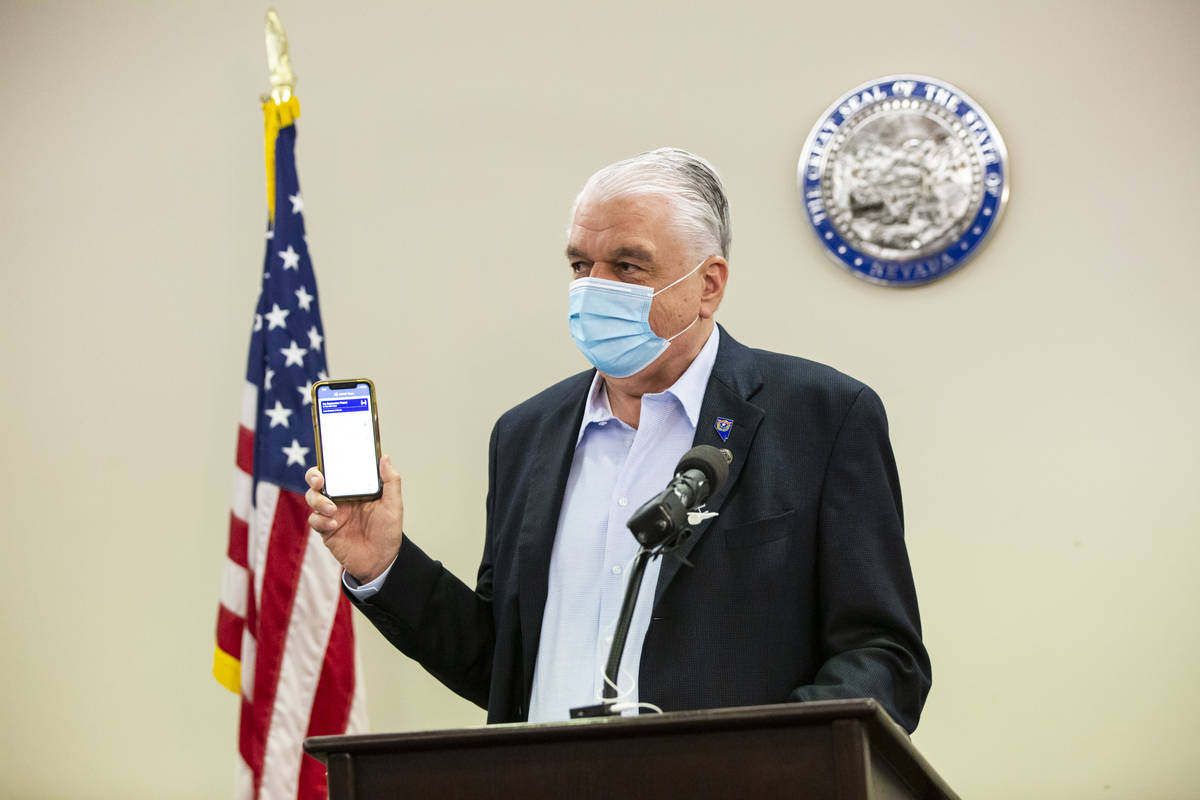COVID task force changes risk criteria for Nevada
CARSON CITY – The state COVID Task Force moved Thursday to ease two of three criteria used to determine elevated risk of coronavirus spread across Nevada’s 17 counties, a move that brings Nevada’s assessment methods in line with federal guidelines, accounts for data fluctuations and incorporates latest best practices for monitoring and tracking the disease.
The move comes as Nevada is seeing incremental increases in key infection metrics, such as the seven-day test positivity rate, now at 8.1 percent after a three-month low of 6.6 percent three weeks ago. The changes have been under review for several weeks, task force members said, but the group has not met for three weeks.
Despite the increases, the overall relative stability of county-by-county numbers on testing, new cases and test rates makes the timing appropriate, officials said, especially given what was an expected rise from recent rollbacks on social distancing requirements and business restrictions.
“We know that as we loosen mitigation efforts and we open some things back up, we can’t be naive and not expect that there is some kind of increase,” state biostatistician Kyra Morgan told the panel as she presented the proposed changes. She later added: “It just seemed like an opportune time to shift these to a more sustainable new normal.”
Changing the criteria
Since the panel was created in August, it has flagged counties at elevated risk of disease spread and subject to stricter controls according to three criteria. Counties that exceed permissible thresholds in two of three areas are considered at higher risk. Currently, only Washoe and Humboldt counties meet that standard.
The task force Thursday voted to raise the permissible positivity test rate from 7 percent to 8 percent for counties with a case rate above 50 per 100,000 population and lower the required daily testing rate for counties to 100 per 100,000 population, down from 150. Those changes bring Nevada more in line with federal guidelines.
In practical terms, the changes have no immediate effect on the high risk list – both Washoe and Humboldt remain where they are. The change in the positivity rate criteria takes into account surge testing events and sometimes fuzzy residency determinations for people tested, both of which can impact county test rates.
Brothels lobby to open
In other meeting activity:
— Interests representing the state’s brothels, which remain closed under pandemic business restrictions, lobbied the panel during public comments to have those restrictions lifted. That action would have to come by directive of the governor, but supporters used one of the few public forums available to make their case, citing other “skin-on-skin” businesses, such as massage parlors, spas and martial arts studios, that are allowed to operate.
Deanna Forbush, a lawyer for the Chicken Ranch in Nye County, compared the brothel business to dentists.
“Yes they wear gloves,” she said of the latter. “But our customers wear just as much protection as they do and they’ve been doing so long before COVID.”
— Contact tracing efforts by health authorities now account for more than 25 percent of new identified cases, more than 21,000 total. The state’s COVID Trace app had nearly 44,000 downloads as of Tuesday; two cases have been identified via the app and 10 people have been notified of exposure.
— The state will soon unveil a new COVID-19 tracking dashboard on its response site. Changes will emphasize moving averages and trends, include county criteria, and present testing data according to date collection, correcting occasional fluctuations in reporting due to delays.
Contact Capital Bureau reporter Bill Dentzer at bdentzer@reviewjournal.com. Follow @DentzerNews on Twitter.












































